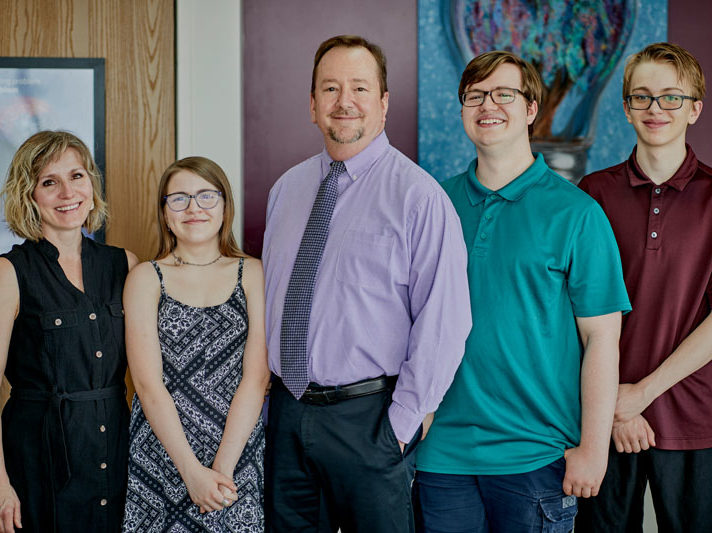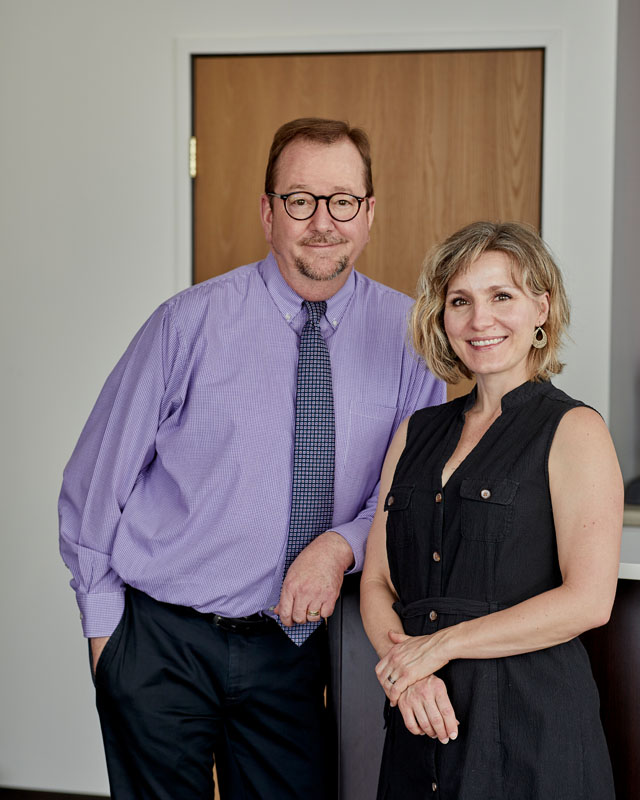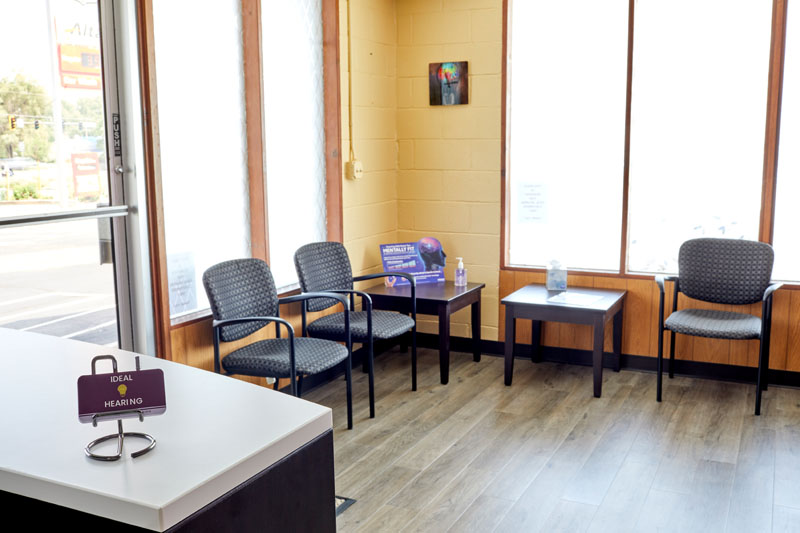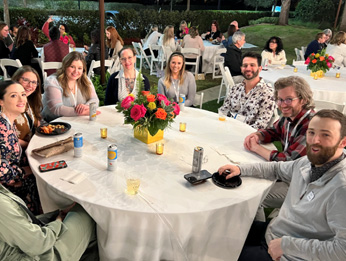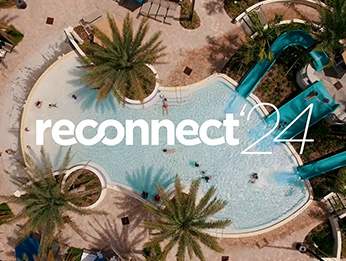1What made you want to open your own practice after 30 years in the industry?
The place where I had been working was taken over by a franchise. I’ve been doing this a long time and I’ve seen this happen over and over again—a corporation buys your clinic then everything changes. I basically said to my boss, ‘look, I need to get out of here before you fire me,’ because that’s what would have ended up happening. I kind of saw the writing on the wall. I didn’t want to work for Costco, so I was like, ‘I guess I have no choice but to start my own practice.’ The other major reason was so that my wife and I could have greater flexibility to continue to support our sons who have both been avid chess enthusiasts and competitors since they were four and compete in high-level chess tournaments out of state at least once a month. There’s no job where I could just say, ‘Hey, I have to leave early on Mondays and Fridays to take my sons to teach chess because they’re making more money than I am right now.’
2So how are you enjoying being your own boss?
Oh, I love everything about it. I’m not seeing enough patients yet, but I know that’ll come. I hated going to work for the last nine years. Now I love coming to work. People seem to love being here, too. I love my office. It’s beautiful. My wife designs a festive wall according to whatever holiday it is. It’s also really nice to be able to fit patients with what’s best for them instead of what I’m limited to dispensing to them. That’s probably the best part. I just need to get more patients through the door.
3Is there anything that’s surprised you these first few months in business?
Yeah, CQ. When I first started, I knew nothing about buying groups. I never had a reason to because I was working for someone else and wasn’t buying my own hearing aids. I don’t mean to be tooting your guys’ horn, but the amount of support that I get from my Marketing Account Executive [Vikki Edmond] and the CQ design team is incredible. It’s something that would normally cost thousands of dollars. In fact, before I knew about AudiologyDesign and CQ Partners, I wasted $4,000 or $5,000 on a website that I ended up not using because it was horrible. I also hired someone to do my logo, but it wasn’t what I wanted. Your marketing team finally gave me what I wanted and made my logo better. While I’m doing a lot of out-of-the-box marketing that requires design on the fly, even if you’re just running newspaper ads, to have someone who designs all of that for you is amazing.
4Tell us more about the out-of-the-box marketing and outreach you’ve been doing with the Lakewood Cultural Center.
I sponsor the assisted listening Loop system installed in their theater and I man a table at any events where older patrons would benefit from the Loop technology. I explain what a T-coil is and how to tell if their hearing aid has one and hand out the assisted listening headsets that work with the Loop system. As part of my sponsorship, I plan to give away a free More 1 Mini-RITE to one of the volunteer staff. I’m going to set up a lead box in the volunteer lounge for a month where they can fill out a card to throw their name in the hat for the free device and hearing test. The winner will get one free hearing aid but will have to pay for the second. Everyone else will get a small discount on a pair of regular-priced hearing aids should they move forward with purchasing.
5Where did you get the idea for this sponsorship? Do you have any past experience with grassroots marketing?
We didn’t do any grassroots marketing at my previous job, but I did convince the franchise owner to do a sponsorship with the Arvada Center and the Denver Center for the Performing Arts which were both super lucrative for us. We put free hearing test offers on the tickets that you could print out at home before you went and saw A Christmas Carol or other plays. To answer the first part of your question, the idea came from two places: one, I majored in theater in college a million years ago and two, I owned and operated a dinner theater for almost a decade. When I was running that dinner theater, the biggest source of revenue outside of tickets and liquor sales was sponsorships. And so, because I’ve worked in the hearing industry since 1986 and I know theater, and I know that their demographics are scarily similar, I reached out to local hearing care providers to see if they wanted to be a sponsor. They were spending $3,000-$5,000 a show because we were delivering them tests from people in their sixties with disposable incomes. And some were averaging opportunity appointments at less than $100 per lead. That’s unheard of in the industry!
6Is this something you’re trying to do with your practice as well?
Believe me, I’ve tried. But it’s a little different with the Lakewood Cultural Center. At a dinner theater, people sit down and they’re at a table for three and a half hours. So they would have all that time to fill out lead cards offering a free hearing test. Then they would just leave the cards on the tables, the wait staff would pick them up, and we’d deliver them to the sponsor. Can’t do that at Lakewood. When someone’s sitting in a regular theater seat, they don’t have a pencil, they don’t have anything to write on, it just doesn’t work. So, it’s more image marketing instead of direct response marketing. But so far, it’s going great. If I stick it out long enough, I’m sure I’m going to see a huge return on a very minor investment.
7What would you say to peers who aren’t making community outreach a priority or looking for less traditional ways to attract patients?
If they already have something that works, like if sending mailers keeps them busy, then I guess maybe they don’t see the need to innovate. I will say this though: twenty years ago, you could expect a one percent return on direct mail. Then it became a half-percent return—if you sent out 5,000 mailers, you’d get 25 phone calls. Now I’m hearing that a quarter percent is more realistic. Anyway, my point is, as things get more competitive, it makes sense to get behind grassroots marketing. Between Medicare possibly covering hearing aids, and over the counter devices, and the giant Pandora’s box that’s going to create in terms of misinformation to the consumer, it’s only going to get harder and harder to get patients through the door. At that point, what’s really going to matter are the established, trusted relationships you’ve built with patients. This is especially important with older people. They’re going to continue to recommend people to doctors they trust. And they’re willing to spend the money—money just isn’t an issue to people if they feel like they’re a part of your family every time they visit your practice.
8Speaking of family, your eldest son has been the subject of several local news stories and even a short documentary. Tell readers about his inspiring journey.
We have a unique family. My oldest son, Griffin, just turned 17 and he’s had four brain surgeries. He had his first two brain surgeries when he was seven, then he had what’s called a hemispherectomy when he was eight where they completely disconnect one hemisphere of the brain. He had a fourth brain surgery in February of this year called a hemispherotomy which is basically like a hemispherectomy redo where they take everything out. If you look at an MRI of Griffin’s head, there’s a giant empty spot on one side, and then the brain on the other. He has major permanent disabilities. We were in the children’s hospital for almost three months after the hemispherectomy because he lost his speech and the ability to move the right side of his body. He had to re-learn how to walk and talk. Basically, it was like having an infant all over again, only a really big one. But what’s amazing about Griffin is that ten days after that surgery—the most major brain surgery you could possibly have—we played a game of chess in the hospital, and he did pretty well! (Watch the documentary
here.)
9So how is Griffin doing since his latest surgery?
He’s doing amazing. Just three weeks ago, he won all his games at the Colorado State Blitz Chess Championship and became the youngest speed chess state champion in Colorado history. Next July, Griffin will be going to Russia to compete against grandmasters from around the world in the Chess Olympiad for People with Disabilities which is a big tournament that’s held every two years. It’s kind of like the Paralympics.
10Why is it so important to you to share Griffin’s story and is it something you talk about with patients?
Our family has always been very open about our struggles because Griffin has wanted it that way. He really wants his story to be inspirational, especially for kids with disabilities. I don’t get into my personal life with my patients very often, but I’m friendly and I could easily spend two hours with every patient. And honestly, sometimes I do. They ask about my life and so I tell them about my family and Griffin. Everybody has a story. It’s a way to connect on a human level. That’s what my practice is all about. I want to help people hear better just like everyone who goes into this profession does, but I also want my patients to stop in uninvited to have a cup of coffee just because they like it here. When you have those kinds of relationships with your patients, then you’ll get referrals, and you’ll stay busy.

.png)
